选课中心NEW
7099人选课
SAT【0】元讲座
免费学
托福【0】元讲座
免费学
SAT模考网站HOT
39209人预约
托福备考练习HOT
39209人预约
SAT辅导课程NEW
免费报名
AP辅导课程NEW
立即报名
中学生托福课程NEW
立即报名
大学生托福课程NEW
立即报名
【定制】1v1
私人订制
【资料】考前冲刺
精
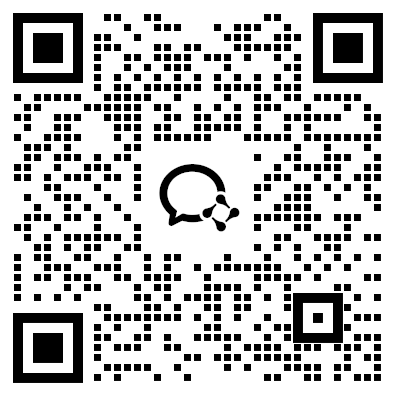
扫码添加助教
免费领取
备考资料大礼包

扫码关注公众号
为了帮助大家高效备考SAT,新东方在线SAT频道为大家带来SAT写作考试题目的具体练习,希望对大家SAT备考有所帮助。更多精彩尽请关注新东方在线SAT频道!
1. Is there always another explanationor another point of view?
2. Is deception ever justified?
3. Are people motivated to achieve bypersonal satisfaction rather than by money or fame?
4. Do changes that make our lives easiernot necessarily make them better?
5. Is conscience a more powerfulmotivator than money, fame, or power?
6. Can success be disastrous?
7. Do we need other people in order tounderstand ourselves?
8. Is the world changing for the better?
9. Do you think that ease does notchallenge us and that we need adversity to help us discover who we are?
10. Should heroes be defined as peoplewho say what they think when we ourselves lack the courage to say it?
11. Is the way something seems to be notalways the same as it actually is?
12. Are bad choices and good choicesequally likely to have negative consequences?
13. Do people learn who they are onlywhen they are forced into action?
14. Are people’s lives the result of thechoices they make?
15. Do closed doors make us creative?
16. Do people have to be highlycompetitive in order to succeed?
17. Is style more important thansubstance?
18. Can what we value be determined onlyby what we sacrifice?
19. Is perfection something to beadmired or sought after?
20. What makes a person wise? Are thewisest people merely smart or are they also concerned with the well-being ofothers?
21. Is the opinion of the majority—ingovernment or in any other circumstances—a poor guide?
22. Is creativity needed more than everin the world today?
23. Are people better at makingobservations, discoveries, and decisions if they remain neutral and impartial?
24. Is a person responsible, through theexample he or she sets, for the behavior of other people?
25.Do people depend on work—whether itis a job, schoolwork, or volunteer work—to determine what their dailyactivities and interactions with others should be?
26. Does progress depend on people withnew ideas rather than on people whose ideas are based on the current way ofdoing things?
27.Are people afraid to speak outagainst authority, whether the authority is an individual, a group, or agovernment?
28.Does worrying too much about otherpeople’s opinions prevent us from seeing things clearly?
29.Do memories hinder or help people intheir effort to learn from the past and succeed in the present?
30.Do people put too much emphasis onlearning practical skills?
31.Should schools help studentsunderstand moral choices and social issues?
32.Do newspapers, magazines, television,radio, movies, the Internet, and other media determine what is important tomost people?
33.Is success in life earned or dopeople succeed because they are lucky?
34.Is society’s admiration for famouspeople beneficial or harmful?
35.Do we live in a time when people donot engage in serious thinking?
36. Should people make more of an effortto keep some things private?
37.Should our perceptions of beauty beinfluenced by the perceptions of beauty of other people?
38.Is praising others, even if thepraise is excessive or undeserved, a necessary part of life?
39.Is conflict helpful?
40.Has the acquisition of money andpossessions replaced more meaningful ways of measuring our achievements?
41.Are leaders necessarily people whoare most capable of leadership?
42.Is knowledge of the past no longeruseful for us today?
43.Is it necessary to limit or putrestrictions on freedom of thought and expression?
44.Do the benefits of scientific andtechnological developments come at the cost of undesirable changes to people‘slives?
45.Do people accomplish more when theyare allowed to do things in their own way?
46.Is it necessary to make mistakes,even when doing so has negative consequences for other people?
47. Can any obstacle or disadvantage beturned into something good?
48.Are all important discoveries theresult of focusing on one subject?
49.Is it best not to change our ideas,opinions, or behaviors?
50.Is our ability to change ourselvesunlimited, or are there limits on our ability to make important changes in ourlives?
51.What do you think motivates people todo their best?
52.Should each individual decide whatand how to learn?
53. Are we free to make our owndecisions or are we limited in the choices we can make?
54.Would the world be a better place ifeveryone always told the complete truth?
55.Does the success of acommunity—whether it is a class, a team, a family, a nation, or any othergroup—depend upon people’s willingness to limit their personal interests?
56.Does the truth change depending onhow people look at things?
57. Does a strong commitment totechnological progress cause a society to neglect other values, such aseducation and the protection of the environment?
58.Are established rules too limited toguide people in real-life situations?
59.Is it sometimes better to take risksthan to follow a more reasonable course of action?
60.Do we tend to accept the opinions ofothers instead of developing our own independent ideas?
61. Do people achieve more success bycooperation than by competition?
62.Is it important to question the ideasand decisions of people in positions of authority?
63.Does true learning only occur when weexperience difficulties?
64.Can deception—pretending thatsomething is true when it is not—sometimes have good results?
65. Do we put too much value on theideas or actions of individual people?
66.Can books and stories aboutcharacters and events that are not real teach us anything useful?
67.Can people achieve success only if theyaim to be perfect?
68.Do success and happiness depend onthe choices people make rather than on factors beyond their control?
69. Are people more likely to beproductive and successful when they ignore the opinions of others?
70.Is it better for people to berealistic or optimistic?
71.Is it important to try to understandpeople‘s motivations before judging their actions?
72.Is happinesssomething over which people have no control, or can people choose to be happy?
73. Should people take more responsibilityfor solving problems that affect their communities or the nation in general?
74.Is it more important to do work thatone finds fulfilling or work that pays well?
75. Is education primarily the result ofinfluences other than school?
76.Is it better to change one’s attitudethan to change one‘s circumstances?
77.Is it more valuable for people to fitin than to be unique and different?
78.Is it best to have low expectationsand to set goals we are sure of achieving?
79.Do we really benefit from every eventor experience in some way?
80. Should modern society be criticizedfor being materialistic?
81. Can knowledge be a burden ratherthan a benefit?
82. Is it always best to determine one’sown views of right and wrong, or can we benefit from following the crowd?
83.Do circumstances determine whether ornot we should tell the truth?
84.Are people more likely to be happy ifthey focus on goals other than their own happiness?
85.Is there a value in celebratingcertain individuals as heroes?
86.Have modern advancements trulyimproved the quality of people‘s lives?
87.Do people truly benefit from hardshipand misfortune?
88.Is identity something people are bornwith or given, or is it something people create for themselves?
89.Can people ever be truly original?
90.Do people achieve greatness only byfinding out what they are especially good at and developing that attributeabove all else?
91.Should we admire heroes but notcelebrities?
92.Does having a large number of optionsto choose from make people happy?
93.Is it always necessary to find newsolutions to problems?
94.Is the main value of the arts toteach us about the world around us?
95.Is criticism—judging or finding faultwith the ideas and actions of others—essential for personal well-being andsocial progress?
96.Do people need to“unlearn,” or reject, many of their assumptions and ideas?
97.Should people choose one of twoopposing sides of an issue, or is the truth usually found “in themiddle”?
98.Do images and impressions have toomuch of an effect on people?
99.Is the most important purpose oftechnology today different from what it was in the past?
100. Is it always better to be originalthan to imitate or use the ideas of others?
101.Is the effort involved in pursuingany goal valuable, even if the goal is not reached?
102.Should people always prefer newthings, ideas, or values to those of the past?
103. Is there any value for people tobelong only to a group or groups with which they have something in common?
104.Are organizations or groups mostsuccessful when their members pursue individual wishes and goals?
105.Should people always be loyal?
106.Do people learn more from losingthan from winning?
107.Are there benefits to be gained fromavoiding the use of modern technology, even when using it would make lifeeasier?
108.Do people place too much emphasis onwinning?
109.Are people’s actions motivatedprimarily by a desire for power over others?
110.Do incidents from the past continueto influence the present?
111.Does fame bring happiness, or arepeople who are not famous more likely to be happy?
112.Is it better for a society whenpeople act as individuals rather than copying the ideas and opinions of others?
113.Are widely held views often wrong,or are such views more likely to be correct?
114.Are the actions of individuals morevaluable than the actions of groups or teams?
115.Is compromise always the best way toresolve a conflict?
116.Are decisions made quickly just asgood as decisions made slowly and carefully?
117.Can a group of people functioneffectively without someone being in charge?
118.Do actions, not words, reveal aperson or group’s true attitudes and intentions?
119.Do all established traditionsdeserve to remain in existence?
120.Do people need to compare themselveswith others in order to appreciate what they have?
121. Is it necessary for people tocombine their efforts with those of others in order to be most effective?
122.Should society limit people‘sexposure to some kinds of information or forms of expression?
123.Is persistence more important thanability in determining a person’s success?
124.Is acting an essential part ofeveryday life?
125.Can people have too much enthusiasm?
126.Do we only help others in order tohelp ourselves in some way?
127.Does planning interfere withcreativity?
128.Do highly accomplished people achievemore than others mainly because they expect more of themselves?
129.Should people change their decisionswhen circumstances change, or is it best for them to stick with their originaldecisions?
130. Is striving to achieve a goalalways the best course of action, or should people give up if they are notmaking progress?
131.Does being ethical make it hard tobe successful?
132.Is it sometimes necessary to beimpolite?
133.Should we limit our use of the term“courage” to acts in which people risk their own well-being for thesake of others or to uphold a value?
134.Should we pay more attention topeople who are older and more experienced than we are?
135.Should people let their feelingsguide them when they make important decisions?
136.Has today‘s abundance of informationonly made it more difficult for us to understand the world around us?
137. Are people best defined by whatthey do?
138.Do we benefit from learning aboutthe flaws of people we admire and respect?
139. Is it best for people to accept whothey are and what they have, or should people always strive to betterthemselves?
140.Can common sense be trusted andaccepted, or should it be questioned?
141.When some people win, must otherslose, or are there situations in which everyone wins?
142.Is using humor the best way toapproach difficult situations and problems?
143.Does everyone, even people whochoose to live alone, need a network or family?
144.Do books, newspapers, and othermedia focus too much on bad news?
145.Is it better for people to knoweverything they can about something before taking action, or should they actfirst and get more information later?
以上就是关于“SAT写作考试题目的具体练习”的内容,更多精彩内容,请关注SAT频道!
SAT水平能力测试【0元免费测试】
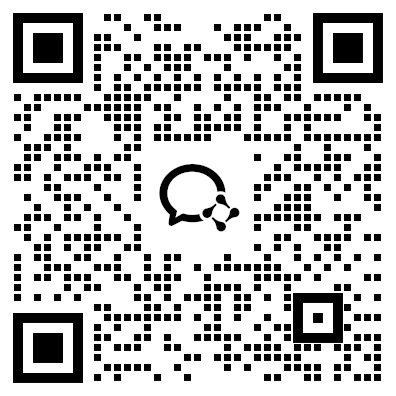
 资料下载
资料下载
【SAT】SAT官方指南题目合集10套
发布时间:2024-04-15添加新东方在线美本助教号
回复【美本资料】获取
SAT阅读+文法+数学专项题型练习册
发布时间:2024-05-31添加新东方在线美本助教号
回复【美本资料】获取
机考SAT-可汗练习题
发布时间:2024-02-29添加新东方在线美本助教号
回复【美本资料】获取
机考SAT-CB官方样题
发布时间:2024-02-29添加新东方在线美本助教号
回复【美本资料】获取
《学科留学百问 (AP-IB-A Level)》
发布时间:2023-02-22添加新东方在线美本助教号
回复【美本资料】获取
2024中国学生留学备考白皮书
发布时间:2023-02-22添加新东方在线美本助教号
回复【美本资料】获取
2023北美考试一本通高中篇
发布时间:2023-02-22添加新东方在线美本助教号
回复【美本资料】获取
新东方SAT阅读讲义
发布时间:2023-02-06添加新东方在线美本助教号
回复【美本资料】获取
2023北美考试一本通高中篇
发布时间:2024-02-29关注美本留学家长帮微信订阅号
回复【美本资料】获取
2024中国学生留学备考白皮书
发布时间:2019-12-19添加新东方在线美本助教号
回复【美本】获取
《学科留学百问 (AP-IB-A Level)》
发布时间:2019-12-19添加新东方在线美本助教号
回复【美本资料】获取
机考SAT-CB官方样题
发布时间:2019-12-19添加新东方在线美本助教号
回复【美本资料】获取
机考SAT-可汗练习题
发布时间:2019-12-19添加新东方在线美本助教号
回复【美本资料】获取
SAT阅读+文法+数学专项题型练习册
发布时间:2019-11-28添加新东方在线美本助教号
回复【美本资料】获取

添加美本助教
即可获取美本资料大礼包

 推荐阅读
推荐阅读
2024年QS学科排名出炉,喜报!美国大学在全球60个学科领域中,斩获了惊人的32个世界第一的头衔!这一数字是英国的两倍还多,彰显了美国高等教育的卓越实力和全球影响力。
来源 : 网络整理 2024-04-23 14:46:36 关键字 : 美国大学qs学科排名,qs学科排名
在2024年的QS学科排名中,英国大学再次展现了他们在教育领域的卓越表现。这次排名中,英国大学在16个学科领域取得了世界第一的成绩,为其在全球教育界树立了新的标杆。
来源 : 网络整理 2024-04-23 11:16:49 关键字 : QS学科排名,英国大学qs学科排名
市场营销作为当代商业领域中至关重要的学科之一,一直备受关注。为了帮助读者更好地了解2024年全球市场营销学科的最新发展和排名情况,本文将介绍QS世界大学市场营销学科的排名榜单,并提供相关的官网链接供读者参考。
来源 : 网络整理 2024-04-23 10:21:37 关键字 : 市场营销学科排名,qs学科排名
备受关注的2024年酒店管理学科全球大学排名榜单终于揭晓,给全球学子带来了巨大的惊喜和期待。作为酒店管理学科领域的权威排行榜,该榜单汇集了各大知名院校和学者的投票和研究结果,为学生们提供了一份权威的选校参考指南。
来源 : 网络整理 2024-04-23 10:15:16 关键字 : 酒店管理学科排名,qs学科排名
每年QS世界大学统计与运筹学学科排名榜单都受到广泛关注,2024年的排名榜单也引起了极大的关注和讨论。首先,让我们来看一下2024QS世界大学统计与运筹学学科排名榜单的前几名。
来源 : 网络整理 2024-04-23 10:10:12 关键字 : 统计与运筹学学科排名,qs学科排名
随着2024QS世界大学经济与计量经济学学科排名榜单的发布,我们可以全面了解到这一领域的最新动态。本文将为您详细介绍2024QS世界大学经济与计量经济学学科排名榜单,解读其中的重点内容,并对我国相关大学在排名中的表现进行分析。
来源 : 网络整理 2024-04-23 10:03:55 关键字 : 经济与计量经济学学科排名,qs学科排名
最新发布的2024QS世界大学社会政策与行政管理排名榜单已经震动了全球教育界。这一排名榜单是依据世界知名教育机构QS(Quacquarelli Symonds)的权威数据和专业评估,为我们提供了一份准确且独具参考价值的全球大学排名。
来源 : 网络整理 2024-04-22 17:01:59 关键字 : 社会政策与行政管理学科排名,qs学科排名
社会学作为一门独具特色的学科,对于了解人类社会的发展和变迁起着举足轻重的作用。每年,QS世界大学社会学排名榜单会揭晓全球各大高等院校在这一领域的表现,并成为了各界人士瞩目的焦点。今天,让我们一起来揭晓2024年的榜单,并深入探讨排名的背后故事。
来源 : 网络整理 2024-04-22 16:56:00 关键字 : 社会学学科排名,qs学科排名
在当今竞争激烈的社会中,选择一所优秀的大学对我们的未来发展至关重要。随着法律行业的日益发展和全球化的趋势,了解和掌握国际上优秀的法律学府成为了无比重要的事情。而2024QS世界大学法律与法律研究排名榜单正是我们选择合适学府的权威指南。
来源 : 网络整理 2024-04-22 16:51:49 关键字 : 法律与法律研究学科排名,qs学科排名
2024QS世界大学教育与培训排名榜单,作为权威的评估之一,给出了全球范围内的学府排名。本次榜单覆盖了各个学科领域,综合评估了学校的教学质量、师资水平、科研实力等多个方面,旨在为学生和家长提供一个参考。
来源 : 网络整理 2024-04-22 16:48:08 关键字 : 教育与培训学科排名,qs学科排名

自动领取备考资料大礼包
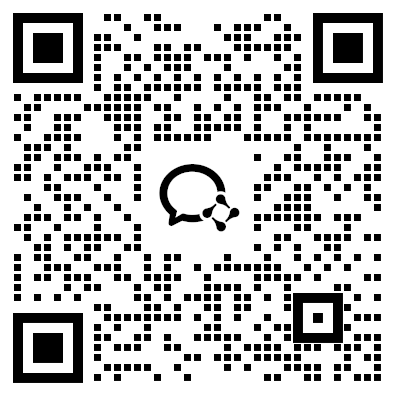
1. 打开手机微信【扫一扫】,识别上方二维码;
2.添加【美本助教】,自动领取留学备考资料大礼包。
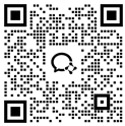
 SAT直播/精讲课
SAT直播/精讲课
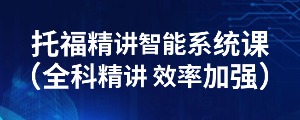 托福精讲系统课(旗舰版)
托福精讲系统课(旗舰版)
 托福直播VIP小班
托福直播VIP小班
 公开讲座
公开讲座
真实了解自己的水平,为备考做好规划!
价格 : ¥0元
真实了解自己的水平,为备考做好规划!
价格 : ¥0元
真实了解自己的水平,为备考做好规划!
价格 : ¥0元

 资料下载
资料下载
添加新东方在线美本助教号
回复【美本资料】获取
添加新东方在线美本助教号
回复【美本资料】获取
添加新东方在线美本助教号
回复【美本资料】获取
添加新东方在线美本助教号
回复【美本资料】获取
添加新东方在线美本助教号
回复【美本资料】获取
添加新东方在线美本助教号
回复【美本资料】获取
添加新东方在线美本助教号
回复【美本资料】获取
添加新东方在线美本助教号
回复【美本资料】获取
关注美本留学家长帮微信订阅号
回复【美本资料】获取
添加新东方在线美本助教号
回复【美本】获取
添加新东方在线美本助教号
回复【美本资料】获取
添加新东方在线美本助教号
回复【美本资料】获取
添加新东方在线美本助教号
回复【美本资料】获取
添加新东方在线美本助教号
回复【美本资料】获取

自动领取备考资料大礼包

1. 打开手机微信【扫一扫】,识别上方二维码;
2.添加【Ella助教】,自动领取留学备考资料大礼包。
 阅读排行榜
阅读排行榜
 相关内容
相关内容